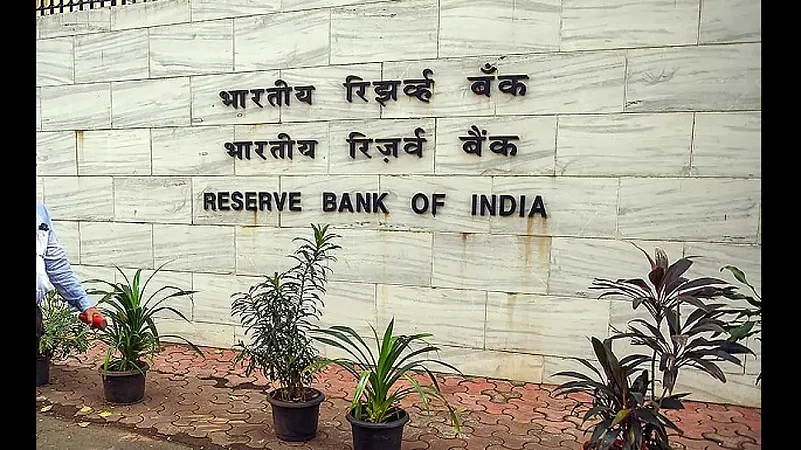In an attempt to curb the practice of imposing penal interest in case of any loan default, the Reserve Bank of India (RBI) Governor Shaktikanta Das, while announcing the monetary policy on Wednesday, February 8, said it has decided that any penalty for the delay or default in servicing of the loan or any other non-compliance of material terms and conditions of loan contract by the borrower will be in the form of ‘penal charges’ in a reasonable and transparent manner. RBI Governor noted that any penalty would not be levied in the form of ‘penal interest’ that is added to the rate of interest being charged on the advances, which has been the norm so far. Additionally, the RBI governor announced that draft guidelines would be “placed on the RBI website shortly for comments from stakeholders.”
It is important to note that penal interest charges on loans generally differ from lender to lender depending upon the type of loan and the terms agreed upon between the borrower and the lender. The penal interest charges are levied on loan borrowers for defaulting on their loan payments or for not adhering to the repayment schedule that was agreed upon. Shreyans Nahar, CEO and co-founder of Finsire, says, “Banks continue to charge a penal charge on consumer loans in case of early pre-payments, minimum balances, e-nach defaults, check bounces, EMI payment delays, and more.”
A cursory glance through the various bank websites shows that home loans usually attract charges of a penal interest rate of 2 per cent per month. For instance, according to the State Bank of India website, penal interest will not be charged for loans up to Rs 25,000. However, “For loans above Rs 25000/-, if the irregularity exceeds EMI or instalment amount, for one month, then penal interest would be charged 2 per cent per annum (over and above the applicable interest rate) on the overdue amount for the period of default.”
Similarly, those who default on HDFC bank personal loan EMI have to pay “Rs 550 along with the EMI amount as the cheque bounce charge. The Overdue EMI interest is 2 per cent per month on the loan principal amount overdue,” as per the official website. Interestingly, according to the Bajaj Finserv website, “delay in payment of monthly instalment shall attract penal interest at the rate of 3.50 per cent per month on the monthly instalment outstanding, from the respective due date until the date of receipt.” Even in the case of smaller banks, like in the case of Bandhan Bank, the penalty charge for home loans the website informs is “penal interest @ 24 per cent per annum, i.e., @ 2 per cent per month on the overdue amount.”
Nidhi Manchanda, a certified financial planner and head of training, research, and development at Fintoo, explains that “with the cumulative increase of 250 basis points to 6.50 per cent in the repo rate since May 2022, some loan borrowers may already be struggling with their EMIs.” Manchanda additionally shares that the latest 25 basis point hike “will only worsen the situation
for these individuals, as it will increase their financial burden, making it difficult for some borrowers to keep up with their repayments, leading to an increase in default rates.”
What RBI Monetary Policy Says
While it is important to understand that some banks also impose a flat interest rate on the outstanding amount for a specific number of days, the exact penal interest charges differ from lender to lender. Highlighting this point, during the monetary announcement today, the RBI governor said that in terms of extant guidelines, "Regulated Entities (REs) have the operational autonomy to formulate Board approved policy for levy of penal interest on advances which shall be fair and transparent." Explaining that the intent of penal interest was essentially to inculcate a sense of credit discipline among borrowers through negative incentives; however, "such charges are not meant to be used as a revenue enhancement tool over and above the contracted rate of interest," RBI Governor said, adding that supervisory reviews have indicated divergent practices amongst REs with regard to levy of penal interest which were found to be "excessive in certain cases, leading to customer grievances and disputes."
The extant regulatory guidelines on the levy of penal interest have been reviewed in the above context. And it was notified "that any penalty for delay/default in servicing of the loan or any other non-compliance of material terms and conditions of loan contract by the borrower shall be in the form of 'penal charges' in a reasonable and transparent manner and shall not be levied in the form of 'penal interest' that is added to the rate of interest being charged on the advances," was announced.
The RBI governor further informed that "there shall be no capitalisation of penal charges (i.e., the same shall be recovered separately and shall not be added to the principal outstanding)." However, in case of any deterioration in the borrower's credit risk profile, the authorities have been given the freedom "to alter the credit risk premium under extant guidelines on the interest rate. Draft guidelines to the above effect shall be placed on the RBI website shortly for comments from stakeholders," the RBI governor said.






























